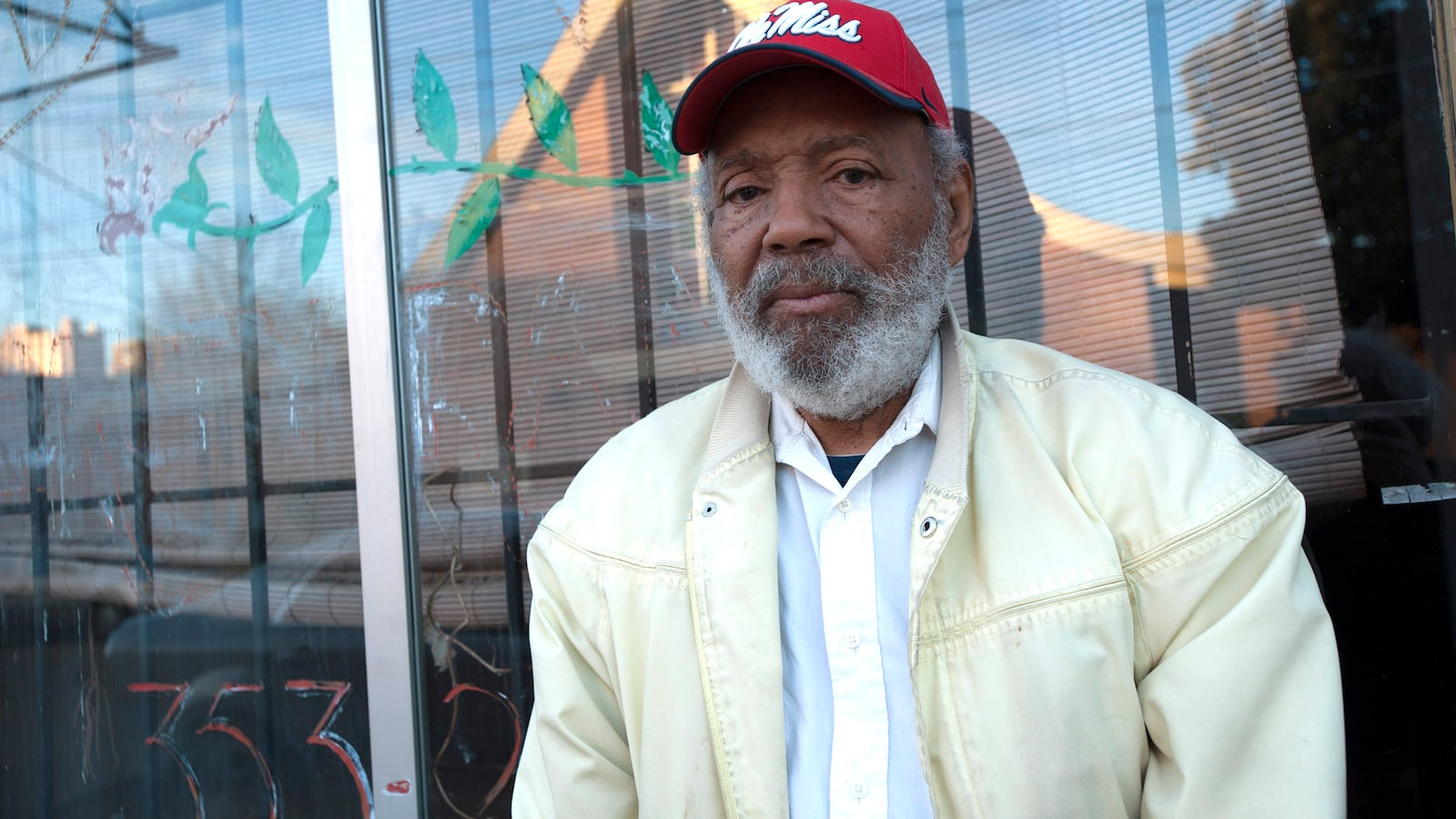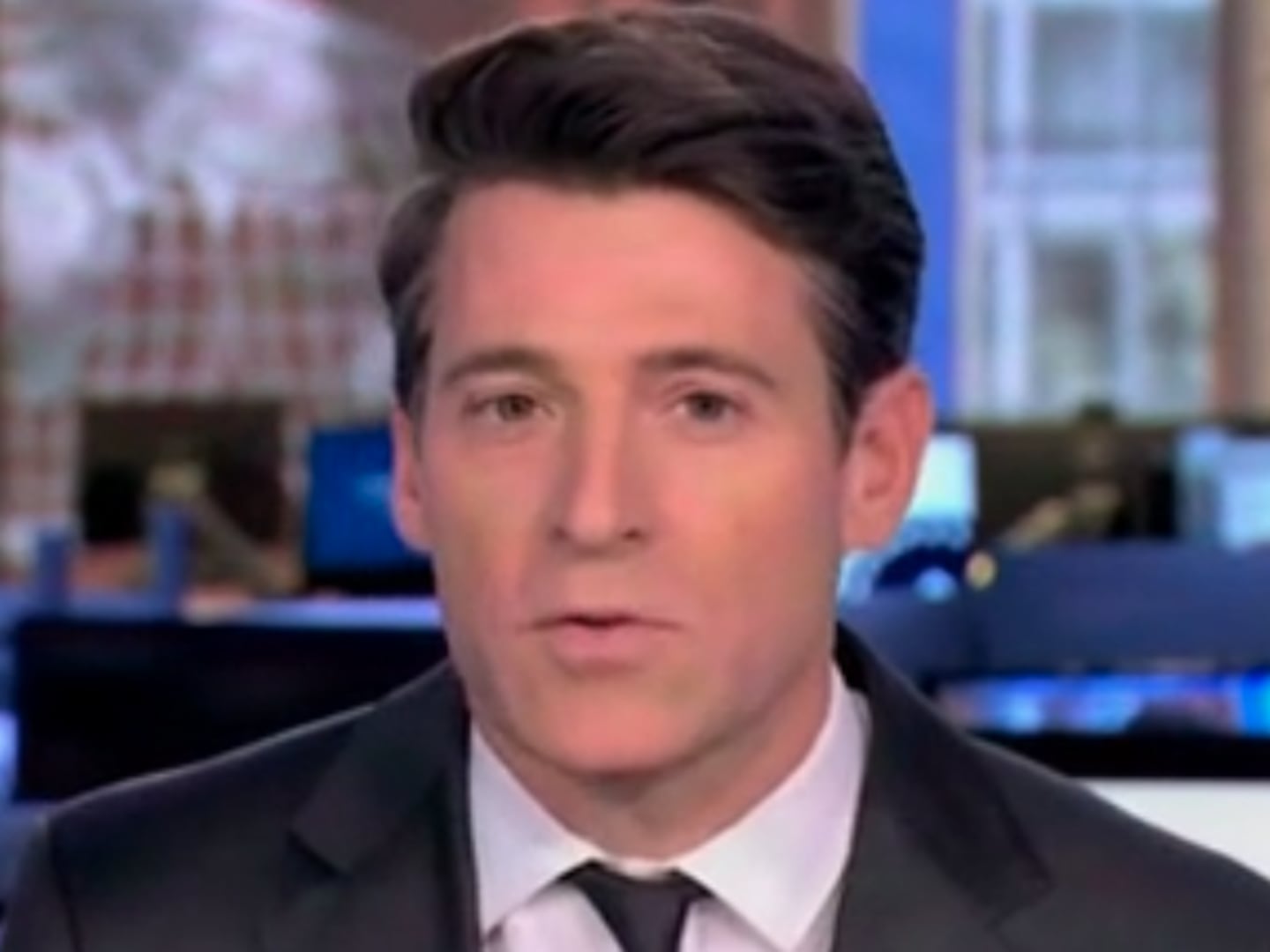“James Meredith is crazy.”
The subject of that sentence says he’s been hearing it all his life. But the first time he saw it in print was 1961, in a news story by New Orleans Times-Picayune reporter Bill Minor. Why in the world, Minor wanted to know, would this 29-year-old Mississippi native risk everything, including possibly his life, in a bid to become the first African-American to attend the lily-white University of Mississippi.
“Bill Minor wrote, ‘James Meredith is crazy.’ But he not only said I was crazy. He said why he thought I was crazy. Because he kept telling me white folks was going to kill me and I didn’t believe it,” Meredith says and laughs.
He can laugh now, because for 84 years he’s survived the death threats, including at least one nearly successful attempt on his life. And because he’s been called crazy so many times by so many different people—including but not limited to white supremacists, Civil Right leaders, liberals, conservatives, Caucasians, and African Americans—these days he listens only to God.

Outspoken, contrarian, and opinionated—as quick to change his mind as other men change their neckties—Meredith is the epitome of the cat that walks by himself.
“I ain’t never stayed in touch at any point with nobody,” he says, sitting in the living room of the modest, one-story house he shares with his wife on a leafy street in Jackson, MS. “I been traveling all my life. I ain’t once called home.”
“Nobody handpicked me,” Meredith wrote in his application for admission to Ole Miss in 1961. He acted alone, save for legal help from the NAACP. And, taking a stance that would prove lifelong, he pointedly distanced himself from the Civil Rights movement, volubly disagreeing with Martin Luther King’s central tenet of non-violent protest. Though both men targeted institutional white supremacy as a common enemy, Meredith, who had spent nine years in the U.S. Air Force, put his faith in the power of the federal government and the military to protect him when he applied to Ole Miss. As far as he was concerned, he was at war with a state that refused to grant him his rights as an American citizen.
Meredith and his lawyers successfully appealed his case through the courts. (Six years later he would earn his own law degree from Columbia University.) But when Mississippi stubbornly ignored the courts, Meredith’s enrollment ultimately required the intercession of the Kennedy administration and U.S. troops, National Guardsmen, U.S. Marshals, and state highway patrolmen, culminating in a pitched battle with a mob composed of college students and vigilante racists on the Ole Miss campus on September 29, 1962. Tear gas and gunfire left scores wounded and two men dead. Most people called it a riot. Meredith calls it the last battle of the Civil War.

1962: James Meredith walking to class accompanied by U.S. marshals and lawyer John Doar (right).
Buyenlarge / GettyEven today you can see bullet holes left by the conflict in an an Ole Miss building. Mere steps away, you can also see a life-size statue, erected in 2006, of Meredith approaching an arch meant to symbolize his historic entry into the university. Until very recently, he took every opportunity to call for the statue’s removal, dubbing it a “false idol.” But at a black alumni meeting last month, inspired he said by the outpouring of praise for his example in 1962, he reversed himself. Mississippi has changed, and so has James Meredith.
In 1966, Meredith again made headlines when he set out by himself on a walk from Memphis to Jackson. His goal was to encourage African Americans to set aside their fears and register to vote. Two days into his journey, he was shotgunned by a Memphis white man and left for dead in the road. He survived. A month later, at the conclusion of what by then had become the March Against Fear, with 15,000 participants inspired by Meredith‘s near martyrdom, he was well enough to rejoin the procession as it entered Jackson.

Button promoting the Meredith Mississippi March of June 1966, which took its name from James Meredith, the first black student to attend the University of Mississippi in 1962.
David J. & Janice L. Frent/Corbis via GettyMeredith denies that bravery had anything to do with his willingness to put himself in harm’s way at Ole Miss or on that Mississippi highway four years later. The only way he survived those ordeals, he says, was by imagining that he was already dead—“and still feel that way!”—thus rendering any fear of death beside the point. To judge the genuine depth of his serenity, you only need to know that during the rioting at Ole Miss in 1962, Meredith, under guard in a campus dormitory, slept through the whole thing.

James Meredith, right, chats with Dr. Martin Luther King after they met on U.S. 51 near Tougaloo, Mississippi on June 25, 1966. Dr. King had led a column of civil rights marchers from Tougaloo College to greet Meredith’s marchers walking in from Canton.
AP Photo“People come up to me and say thank you for being so brave, thank you for putting up with that,” he says. “But I ain’t never in my life experienced nothing that anybody was talking about. What I think is, in order to be brave, there has to be something to fear, and it’s an insult to me to think there’s anything that would scare me.”
As for those who assume that this pivotal figure of history is surely dead, Meredith is more amused than angered. On a recent visit to Jackson’s new Mississippi Civil Rights Museum, “I was sitting on a bench, and I heard two people saying, ‘That’s James Meredith sitting over there.’ And they said, ‘No, that can’t be James Meredith. He dead.’ And I heard someone else say, ‘Is that Medgar Evers over there?’ There is literally no black in Mississippi 50 years or older that don’t think that James Meredith is supposed to be dead, for the same reason that Bill Minor said that James Meredith is crazy. Because of the things I have done, because blacks got killed for doing much less than that, everybody thought I was dead.”
For his part, Meredith has never been willing to quietly take his place in American history’s hall of fame. All his life he has spoken out, with no regard for what people thought of him, and certainly with no thought of burnishing his image as a hero of the Civil Rights movement, about which he says, “My father paid a price far beyond anything I ever paid. And what I think about the so-called Civil Rights era is that it’s an insult to all the elders that came before for a small group of people to say they got credited with this. I know it’s a lie. And I ain’t never going to give it no credibility if I can help it.”
—In 1967, he endorsed the gubernatorial bid of former Gov. Ross Barnett, the segregationist politician who was his chief antagonist in the Ole Miss struggle.
—In 1991, he endorsed the Louisiana gubernatorial bid of white supremacist and former Klansman David Duke.
—From 1989 to 1991, he served as domestic policy adviser for arch-conservative Sen. Jesse Helms (R-NC).
But conservatives, like liberals, have learned the hard way not to take this modern Don Quixote for granted. For although he has never stopped criticizing the social engineering installed in the ’60s under Lyndon Johnson’s Great Society, he has been an equally relentless critic of racism and white supremacy, and lately praised Barack Obama: “I think Obama is already challenging George Washington, up there in that category, and gonna remain there for the foreseeable future.”
As for Donald Trump, he cannot even be bothered to offer an opinion: “Christians must take care of only the business of God, and I can’t talk about that because that’s not God’s business, that’s man’s business, and I’m on God’s business.”
It would be easier to dismiss Meredith as just another crank and sorehead were he not so self-aware and self-mocking and so willing to laugh at himself.
“For 50 years, my brother has been saying, James, why do you run every friend you got off? And not only do you run your friends off but when you come visit me and my friends come by, you run them off, too!”
In his eighties, as sharp and irascible and energetic as a man half his age, Meredith has embarked on a new project that he frankly calls a “mission from God.” As far as he’s is concerned, he’s been on such a mission his whole life. In application to Ole Miss, he wrote, “I believed, and believe now, that I have a Divine Responsibility.”
But for the most part, he avoided such talk. “Almost all my life I denied my mission,” he says. “I tried to cover it up. When my publisher titled my last book, I was shocked when I discovered that they’d called it A Mission From God, because I’d spent all my life trying to make sure nobody thought I was doing that. When the book came out and I saw that title for the first time, I thought somebody had peeked my hole card.”
Lately, he says, he’s become more willing to be forthright. “My God is telling me that the reason I’m not dead like everybody thought I would be is that He was saving me, preparing me to do this job now.”
The “job” is the James Meredith Bible Society. According to its founder, God wants him to take his message to all 82 counties of Mississippi. “So far I’ve been to one, but I think God’s gonna make me go back because I ain’t got no proof that anybody heard me, much less that anybody’s thinking about doing God’s will as I’m promoting it.”

The core message of the Bible Society is simple: Follow the 10 Commandments and the Golden Rule. Beyond that, members must agree to read the Bible from cover to cover, read or listen to one of the books of the Bible every week, teach the commandments and the Lord’s Prayer to a child between the ages of one and five, and attend monthly society meetings. The membership, like an army of Christian soldiers, will be assigned ranks from private to general.
“I believe the most important thing for human beings is religion,” Meredith says. “And I believe the principle function of religion, of every one I’ve studied deeply, was moral character, keeping at or above a certain level and definitely taking care when it’s below a certain level. Consequently, the only way to arrive at that level is to follow God’s plan. But man always want to follow his plan.”
Meredith does not exempt himself. “My God tells me I ain’t never done nothing he instructed me to do. I’ve always done what I wanted to do. He let me fool myself into thinking I was fooling Him most all of my life. You and all the other people were human. But them laws didn’t apply to me. I thought I was God’s gift to the world. I was special. And the most shocking thing, when He got my attention, he said, James Meredith, you are my gift to the world, but you’re just one among many. I said, God, you have got to be kidding. I always thought I was the only one. What you mean? But He convinced me He is in charge of everything, the good and the bad. It was hard for me to accept that He would do all the bad things for His own good purposes. But once I accepted that, I still had the problem, as He always put it to me, of just trying to do my job and not trying to judge other people and what they do. He said, if you really want to be important, just figure out the little bit I want you to do. When you do that, everything else will fall into place. I know He’s right. I ain’t sure I can do it. But I am getting hints now that people may start to listen.”
Then, as he does almost every time he catches himself answering a question at great length, he chuckles and says, “God’s jerking on my coat again, saying shut your mouth, you already answered the man’s question, and now you’re getting yourself in trouble by talking too much.”
But, a little like an old-time stump preacher who, once wound up, can’t seem to stop, he goes on: “I’ve had to make some significant decisions in old age. The principle one I’ve made—most of my life I’ve spent trying to educate people to know what I know so they could understand what I’m talking about. It came to me that that is not the way. That is not God’s way. What you have to do is start doing God’s will so other people can follow that example. And that’s what I’m setting out to do now. ”
His Bible society mission has consumed Meredith for the better part of the last decade. “A whole lifetime really,” he says. “I can’t remember a day since I was four years old, actually younger, that I didn’t think that God had me on this mission. I remember clearly when I was four, standing in [his hometown of] Kosciusko and thinking that I’m going to build me a city. I don’t know what it’s going to be like, but it’s going to be different from this.”
In many ways, Meredith is a study in contradictions: proud and humble, vinegar and sugar, angry and beatific. Thus one minute he can say, when asked if he is surprised at the recent resurgence of white supremacy, that “white supremacy ain’t never gone anywhere, and it ain’t never going anywhere.” And the next minute he’ll start talking about “a change in the atmosphere in Mississippi. People want to be doing something different from what they been doing. That’s everybody. I know that there’s an atmosphere from anything I have ever experienced in my lifetime, that change is possible. Particularly in Mississippi now, nothing has bothered any group of people more than the black-white race issue has bothered good whites in Mississippi over the last 25 or 30 years. I feel very sure they want to change.”

James H. Meredith, left, clutches his diploma at graduation on the campus of The University of Mississippi in Oxford on Aug. 19, 1963 after becoming the first African American to graduate in the University of Mississippi's 115-year-old history. Meredith received his degree from Dr. J.D. Williams, right, chancellor of "Ole Miss."
JIM BOURDIER/APHe has no regrets about his life. “My daddy always taught me the two greatest wastes of time are regretting the past and worrying about the future, and he did such a good job that I ain’t never spent an ounce of energy on either one.”
And he is much less interested in talking about the past than what he’s going to do next. Asked if he’s not proud of what he accomplished at Ole Miss and on the March Against Fear, he bristles, his intense dark eyes burning even brighter.
“The only thing that question tells me.” he says, “is that you don’t know nothing about James Meredith. I don’t even have thoughts that would prepare me to answer that question.”
About the future he is more sanguine. Asked how he wants to be remembered in 50 years, he answers quickly, cheerfully, and with no equivocation: “Doing God’s will. Successfully!”





